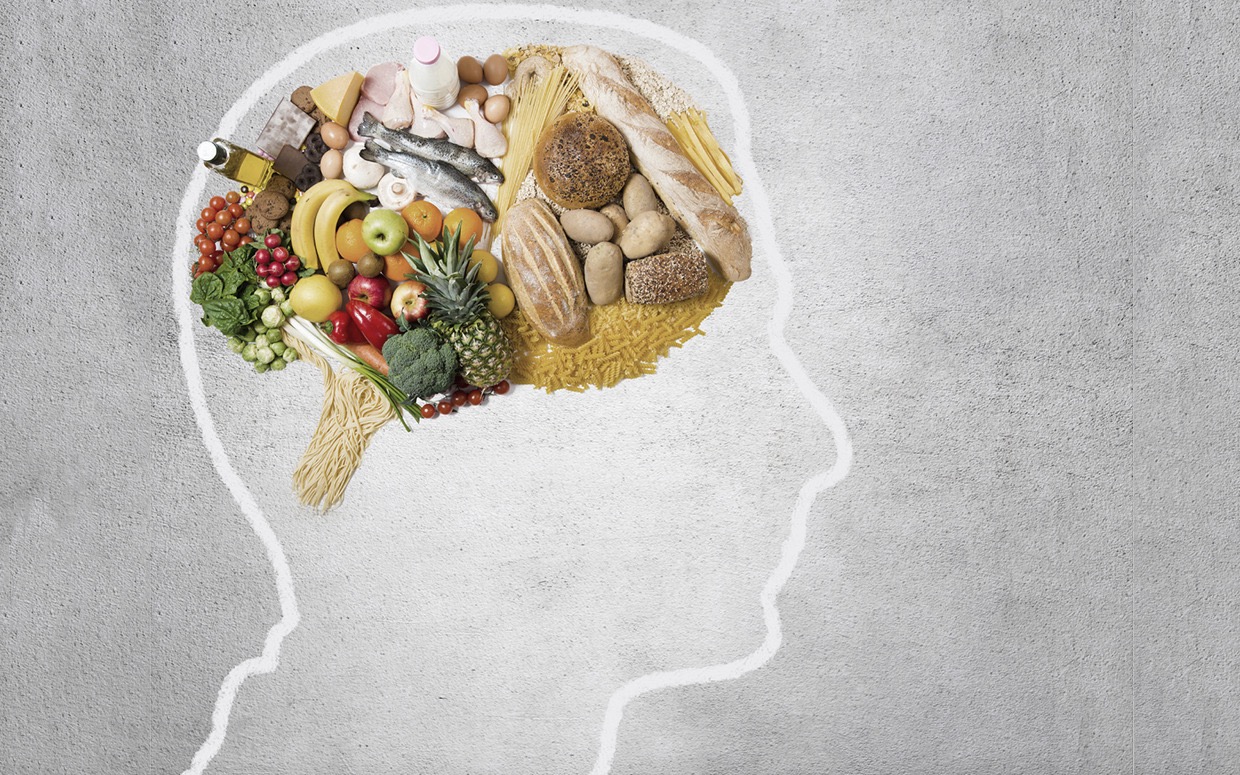About Us
Sometimes age, sometimes other problems can lead to mental issues and it’s not a pleasant thing for anybody. There are plenty of things that you can do to avoid these problems or to improve the symptoms if they appear. That is why we’re here.
We will teach you what you can do to keep your mental health for a longer time - simple tips and tricks about dieting, exercising and medication.
Please note that we are NOT in any way associated with or represent National Alliance on Mental Illness of Lehigh Valley. You can find their website here.
Latest Posts
You have probably heard about some of the most popular brain power boosting foods such as blueberries, pomegranates, and salmon. But, according to this resource on nootropics and many like it, numerous other foods provide health benefits to the brain. And most you may not have even heard about.
In this article, we are going to introduce you to some of these foods. You may be surprised what you learn about them.
Milk
We know that milk has a lot of nutritional benefits to the body, but what about the brain? Well, according to a recent study, consuming dairy products at least once a day gives you significantly better brain functionality and health compared to people who rarely or never consume dairy foods.
The same study also concluded that “…regular dairy food consumption is associated with a significantly better cognitive function, but underlying causal mechanisms remain to be determined…”. That just means people who take dairy products perform better than non-consumers, but it is not 100% clear why.
Watermelon
Watermelon has a high concentration of antioxidants such as lycopene. Lycopene helps prevent cognitive decline. This fruit also provides a strong complement of beta-carotene. However, it is important to note that to get the most benefit, the watermelon needs to be perfectly ripe.
Seaweed
There is some tangible evidence which suggests frequent consumption of seaweed can provide many brain benefits. Seaweed is a vegetarian alternative to the brain power boosting DHA Omega 3 acids found in salmon and other cold water fish. It has a lot of folic acids, an essential nutrient for the brain at any stage of life.
Seaweed also contains a substantial amount of magnesium, which is a vital nutrient in alleviating stress as well as protecting the brain and body from its adverse effects. The plant also contains lignans, a group of phytonutrients associated with better brain function in postmenopausal women.
Chicken
Most tend to be surprised when they hear that chicken offers health benefits to the brain. It turns out chicken is an excellent source of choline as well as vitamins B6 and B12. All these play a fundamental role in neuroprotection and overall brain health.
Sesame Seeds
Sesame seeds are rich in lipophilic antioxidants which help prevent many age related conditions. Including these seeds and other high impact foods such as turmeric or flaxseed to your diet is a straightforward way to add a little brain boost to each bite.
Sage
In many communities, sage has been used for thousands of years for medicinal purposes. However, recent studies have shown that sage may help delay cognitive decline and enhance memory recall.
Butternut Squash
These and other winter squashes are rich in Vitamin C, beta carotene, niacin, folic acid, and antioxidants. They have a lot of body and brain health benefits and add very few calories to your diet.
Lentils
Lentils are legumes rich in folic acid. Research has shown that folic acid is essential for brain plasticity starting at when an infant’s brain first develops all the way through late adulthood.
Za’atar
This spice which few have heard of is of a middle eastern origin. It is a blend of sumac, sesame seeds, thyme, marjoram or oregano. It is known to be an excellent brain food, a fact supported by multiple scientific studies.
Oregano and thyme contain a compound known as carvacrol, which has been proven to affect serotonin and dopamine levels in mice. Sesame seeds, as mentioned earlier, contain lipophilic antioxidants that help prevent age related diseases.
If you are looking to give your brain a healthy boost, try adding any of the foods mentioned in this article to your meals. Supplements can work great to improve cognitive functionality, but there is so much more you can do before resorting to them. Try making a few simple diet changes first, and you’ll be amazed at the improvements they can make. These foods, along with brain and body exercises, will ensure optimal performance of your brain for a long time to come.
Many think of supplements as a way to enhance physical health. However, supplements have an even stronger ability to affect one’s mental state. There is a whole category called nootropics which do exactly that. In fact, vitamin and mineral deficiencies have been shown time and time again to worsen severe mental illnesses such as anxiety and depression.
There is much evidence backing up the use of vitamins and minerals for prevention and treatment of neurological and psychological problems. Along with this, they also typically come with fewer side effects than prescription drugs. In this article, we will go over a couple of supplements which can be of great benefit to your mental health.
Vitamin D
Vitamin D is perhaps the most important vitamin for your physical health and your mind. Unfortunately, it is also one of the vitamins of which a majority of people simply do not get enough. Limited sun exposure, the use of sunscreen, and an unhealthy diet void of fatty fish has led to what is now an epidemic of vitamin D deficiency all over the globe.
In fact, some professionals estimate that over 50% of people worldwide are vitamin D deficient. This statistic is very unfortunate as this vitamin is an essential nutrient for both immune and nervous systems. Low levels of it have also been linked to depression.
A lot of people end up experiencing symptoms for a short while in the winter months when sun exposure is at a minimum. This condition is, appropriately enough, known as “SAD.” For these individuals, quick amounts of sun exposure might make a difference. However, those that are experiencing much more significant deficiencies have no other course of action but to supplement with actual vitamin D3.
Vitamin B12 and Folic Acid.
These two vitamins work together synergistically. They both can help achieve optimal health of your nervous systems. The reason they are so critical to the health of the brain is that they help facilitate the overall communication between nerve cells.
The vitamins work to regulate various things such as sleep and mood. It has been shown that people who suffer from severe depression more often than not have folic acid deficiencies. It would, therefore, be wise to consult with a healthcare professional to determine if you fall into this group.
As it relates specifically to vitamin B12, many people lack it in the right quantities. This is true for as much as 15% of the population. This vitamin is typically gained from various healthy food sources such as eggs and meat. Anyone who is vegan or vegetarian should definitely be supplementing their diet with vitamin B12.
Vitamin B12 is also absolutely critical for your brain because it is responsible for not only producing many vital neurotransmitters but also for maintaining them. An insufficiency in this type of vitamin can result in depression, severe fatigue, and anemia. Worse yet, it can lead to neurological diseases.
As a bonus, taking a vitamin B12 supplement can supply you with a short spike in energy levels. This temporary boost will allow you to get an energy kick first thing in the morning without the stimulation of caffeine.
Overall, supplements can play a critical role in avoiding or limiting mental health problems and promoting overall health. This article only discusses two of them, and that is barely scratching the surface. For more information on other brain friendly supplements and nootropics visit Best Nootropics Now. You can also have a chat with your doctor to see which product may be right for you.
You’ve heard it all before: lack of sleep can wreak havoc on your cognitive abilities, mood, and overall well being. And if you’re sleeping less than seven hours per night, you’re probably not getting the rest you need.
Your sleep patterns, mood, and overall mental health are very closely related. If you’re not getting enough of the former, the result will be moodiness and irritability. You’ll be more stressed and more likely to suffer from anxiety and depression too. The fact is very few adults today are getting enough rest. Most treat sleep a luxury, not a requirement.
Statistics show that lack of sleep plays a huge role in many mental disorders. As patients learn to get more rest, their moods often begin to stabilize, and whatever medication they’re on to treat their condition can be reduced.
Again, sleep is a necessity, not a luxury. Everyone should get at a bare minimum seven hours of uninterrupted sleep each night. If you’re struggling to get yours, that is something you should address now. Look into how to improve your sleep patterns at the first chance you get.
Sleep helps the brain retain what it has learned throughout the day. It helps you to process what you’ve experienced so that you’re able to relax and properly focus on your next task at hand.
Various phases of sleep each have their specific benefits to memory. Sleep deprivation will strip you of this, and you’ll likely find yourself struggling to remember even the simplest things throughout your day. You may also experience issues focusing and concentrating.
Lack of sleep also slows your reaction time. For this reason, those who drive for a living must have specific amounts of time on and off the road. If they’re not getting their sleep, it’s not safe for them to be driving.
Another indication you may not be getting proper rest is if you wake up all out of sorts and groggy in the morning. An hour more or so of sleep may be all you need and will go a long way in helping you to function and feel better.
Sleep is a must have for everyone. There’s no way around it. Don’t neglect your sleep patterns and focus on improving them if you’re not getting enough rest. You will find you feel much better. Doing so will also have big benefits for your mental health in the long run.
In a world that’s harsh, being sensitive can be extremely difficult. When you’re too sensitive or when the problems overwhelm you and you can’t seem to find a solution, your mental health can be in danger and different issues can appear.
Mental health issues don’t appear just with age – it’s true that Alzheimer or other diseases represent the problems of those who are of a certain age, but in many people, you will see depression and different addictions that have similar or worse results than those diseases.
Improving your mental health can be a good thing to do, no matter how old you are, as many of these tips are easy and simple and you can do them in your free time, requesting only a few minutes of your time.
A Cup of Coffee
The coffee that many people drink is more than an energizer. It contains good substances that help boost your metabolism and several hormones which prevent the apparition of depression. Studies have shown that at least a cup of coffee per day will lower the rate of depression issues. The same results will be achieved if you drink green tea.
A Journal
This shouldn’t be kept for not forgetting things, but for keeping close to your soul those things that you are grateful for and the things that you were able to do that day or to accomplish. You should have at least 3 things of each and every day, so when you read back what you’ve done, you’ll see the good events that took place – you’ve planted a flower, you read 30 pages of a book, you’re grateful for helping your friend with something and so on.
Do Something New
Starting something new can be quite an adventure, so when you have some free time, try doing a different thing. For example, you can try a new cookies recipe, read or write a poem, paint a door, try a DIY project – do something that’s new to you and will keep you busy for at least a few hours. A new project will encourage your brain cells (the neurons) to create new paths, improving all the functions of the brain.
Dark Chocolate
Dark chocolate is made with a high concentration of cocoa, which is a great energy source for the brain cells. This helps them create neuronal paths and have a longer life. A few pieces of dark chocolate every few days will help you stay active longer, improve your alertness and your mental skills.
Last, but not least, don’t forget to keep an optimistic life. If you need help – ask for it, if you can offer help – just do it, and if you can get out of your comfort zone, then life might still have surprises for you and keep you healthy for a longer time!
Get in touch
- NAMI PA Lehigh Valley
2307 Magoffin Ave.
El Paso, TEXAS
United States, 79901
Contact Us
NAMI PA Lehigh Valley is your resource website for learning about mental health issues, how to treat them and how to prevent them. You can find plenty of useful material on our website, but if you want, you can contact through the contact form or phone number and we’ll provide you with the info that you need!






